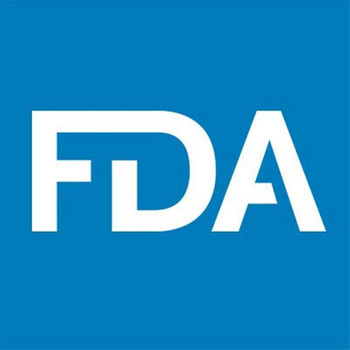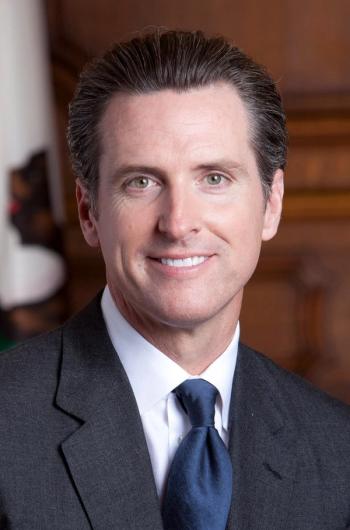
David Lareau, CEO of Medicomp Systems, says this delay will mean ongoing challenges in access to accurate, complete data—which is more important now than ever before.

David Lareau, CEO of Medicomp Systems, says this delay will mean ongoing challenges in access to accurate, complete data—which is more important now than ever before.

Results show an electorate deeply divided by age, gender, and partisanship.

In this week’s episode of Tuning Into the C-Suite, MHE's Briana Contreras spoke with Denise Basow, president and CEO of Clinical Effectiveness at Wolters Kluwer. Briana and Basow discussed the importance of uniting prescribers and pharmacists at the point of care and how this form of care can create more efficient and effective operations within health systems.

Experts discuss the falsehoods and half-baked ideas that are in circulation about COVID-19 transmission, treatment and equivalence to the flu.

The Max Cure Foundation is urging a dramatic reduction of toxic chemicals in the environment and within consumer products to reduce the number of children diagnosed with cancer.

The combination therapy of Opdivo plus Yervoy will treat the cancer caused by inhaling asbestos fibers.

The recall is attributed to higher levels of the carcinogenic ingredient NDMA than are allowed.


Insights from MGMA’s data report tracks key performance indicators and best practices for optimizing patient access and sustaining financial viability through the pandemic.

Lindsay Engle, Medicare Expert at MedicareFAQ, clears more of the air on what Medicare’s future could possibly look like under either presidential candidate's reign.

Without changes to next year's Medicare fee schedule, physician payment would be reduced by almost 11%. says the AMA.

Battling racial bias in the workplace. How implementing an inclusion, diversity, equity and accessibility training initiative can lead to better results in racial disparities within healthcare and beyond.

"If the president can get infected in the protected bubble he lives in, anyone can."

An immunotherapy combination gets a third thoracic indication; another potential indication for an SGLT2 inhibitor.

In recent decades, many companies have adopted the maxim, “Do what you do best, and outsource the rest.” From the ability to focus on the core of their business to gaining outside expertise to boosting their quality of service, there are many reasons outsourcing may be appealing to an organization.

Second study shows minority children are half as likely to have surgery as white children.

Hiring an interim executive has long been thought of as a band-aid solution on the heels of an unexpected resignation or a way to give a potential new leader a trial run before committing. But with more businesses and health organizations taking on flexible staffing approaches combined with the ups and downs of the economy over the past 15 years, companies have realized the financial and strategic benefits of engaging an interim executive rather than seeking to make an immediate permanent hire.

As we continue to navigate the unknowns of the current pandemic, it appears we're still a long way off from living in a true post-COVID-19 era. Until then, improved health outcomes can still be realized through effective population health strategies, providing adequate financial resources that are available and encompassing all the determinants of health in communities, including social, behavioral and environmental factors.

Specifically, continuous glucose monitoring has shown incredible promise in the fight against COVID-19 at Rush University Medical Center. At Rush, 34 patients who used glucose telemetry resulted in saving nearly 1,400 sets of personal protective equipment and about 43 nursing workdays by reducing the need for nursing staff to enter patient rooms for fingerstick glucose testing.

The retail giant is teaming up with Clover Health to market Medicare Advantage plans in eight counties in Georgia.

The American Medical Association recently applauded California Governor Gavin Newsom and the sponsors of the state’s new mental health reform law, Senate Bill 855, which will require all health insurers and behavioral health management organizations to rely on evidence-based treatment guidelines developed by physicians and health care professionals—and not financial considerations.

The rapidly evolving landscape of extended reality technologies has presented us with unique tools to enhance our virtual interactions and come closer to the therapeutic experience that is so important to successful delivery of effective and high-quality remote care.

This episode of Tuning Into The C-Suite welcomes our first of many episodes part of the new “Meet the Board” podcast series. Listeners will now hear from a member of Managed Healthcare Executive's Editorial Advisory Board once a month at the end of each month. The first guest featured is Physician and former Executive VP of the American Cancer Society, Otis Brawley. Brawley is a Bloomberg Distinguished Professor of Oncology and Epidemiology at Johns Hopkins University.


Independence Blue Cross and Signify Health have put together of community organizations and other services to address the social determinants of health and provide in-home care.

The work of moving away from fee for service is in progress. The results so far? Mixed.

Pfizer snagged its fourth indication for the blockbuster medication tofacitinib (Xeljanz) for children and adolescents 2 years and older with active polyarticular course juvenile idiopathic arthritis (pcJIA).

Xanax and Ativan are among the medications impacted by FDA’s new requirements.

Penn’s Amol Navathe, M.D., Ph.D., and colleagues reported favorable results in Health Affairs. Navathe is featured in this second of a two part video series.

Researchers compare beneficiaries with end-stage renal disease in a Medicare Advantage Special Needs Plan sponsored by CareMore to patients in traditional Medicare, explains Amol Navathe, M.D., Ph.D., an assistant professor in the Department of Medical Ethics and Health Policy at University of Pennsylvania’s Perelman School of Medicine, in this first of two part video series.